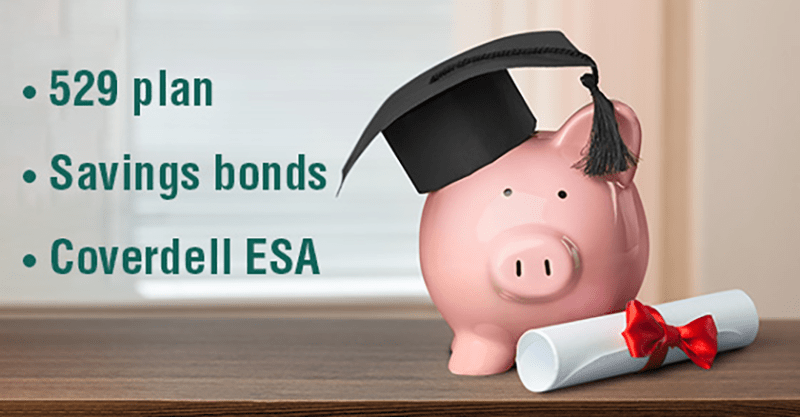Tax-Favored Ways to Build up a College Fund

If you’re a parent with a college-bound child, you may be concerned about being able to fund future tuition and other higher education costs. You want to take maximum advantage of tax benefits to minimize your expenses. Here are some possible options.
Savings bonds
Series EE U.S. savings bonds offer two tax-saving opportunities for eligible families when used to finance college:
- You don’t have to report the interest on the bonds for federal tax purposes until the bonds are cashed in, and
- Interest on “qualified” Series EE (and Series I) bonds may be exempt from federal tax if the bond proceeds are used for qualified education expenses.
To qualify for the tax exemption for college use, you must purchase the bonds in your name (not the child’s) or jointly with your spouse. The proceeds must be used for tuition, fees and certain other expenses — not room and board. If only part of the proceeds is used for qualified expenses, only that part of the interest is exempt.
The exemption is phased out if your adjusted gross income (AGI) exceeds certain amounts.
529 plans
A qualified tuition program (also known as a 529 plan) allows you to buy tuition credits for a child or make contributions to an account set up to meet a child’s future higher education expenses. Qualified tuition programs are established by state governments or private education institutions.
Contributions aren’t deductible. The contributions are treated as taxable gifts to the child, but they’re eligible for the annual gift tax exclusion ($15,000 for 2021). A donor who contributes more than the annual exclusion limit for the year can elect to treat the gift as if it were spread out over a five-year period.
The earnings on the contributions accumulate tax-free until college costs are paid from the funds. Distributions from 529 plans are tax-free to the extent the funds are used to pay “qualified higher education expenses.” Distributions of earnings that aren’t used for qualified expenses will be subject to income tax plus a 10% penalty tax.
Coverdell education savings accounts (ESAs)
You can establish a Coverdell ESA and make contributions of up to $2,000 annually for each child under age 18.
The right to make contributions begins to phase out once your AGI is over a certain amount. If the income limitation is a problem, a child can contribute to his or her own account.
Although the contributions aren’t deductible, income in the account isn’t taxed, and distributions are tax-free if used on qualified education expenses. If the child doesn’t attend college, the money must be withdrawn when he or she turns 30, and any earnings will be subject to tax and penalty. But unused funds can be transferred tax-free to a Coverdell ESA of another member of the child’s family who hasn’t reached age 30. (Some ESA requirements don’t apply to individuals with special needs.)
Plan ahead
These are just some of the tax-favored ways to build up a college fund for your children. Once your child is in college, you may qualify for tax breaks such as the American Opportunity Tax Credit or the Lifetime Learning Credit.
Contact us if you’d like to discuss any of the options.
© 2021





